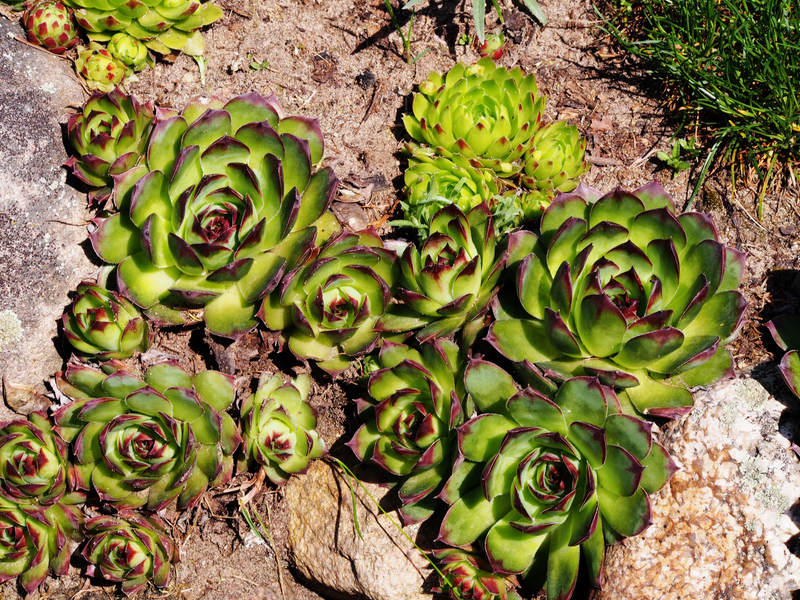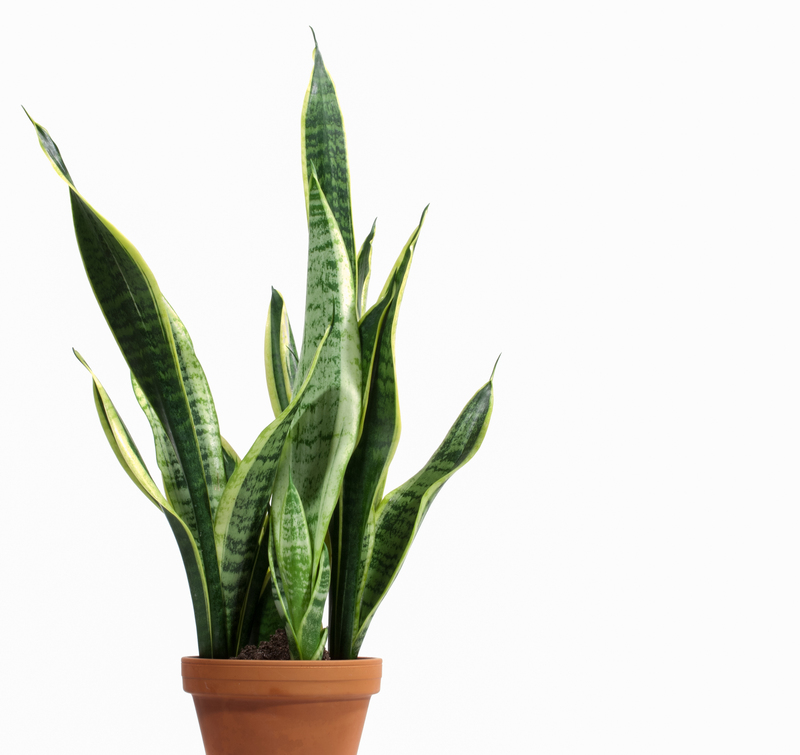Start Strong: 9 Gardening Tips Every Beginner Needs to Know
Posted on 18/08/2025
Start Strong: 9 Gardening Tips Every Beginner Needs to Know
Are you dreaming of a flourishing garden but aren't sure where to begin? Whether you have a modest balcony or a sprawling backyard, starting a garden can feel daunting. Don't worry--every green thumb started as a beginner gardener, and with the right advice, you'll be on your way to lush, thriving plants in no time. In this comprehensive guide, we'll cover the essential gardening tips for beginners, focusing on practical steps to help you cultivate success from day one. Let's dig in!
Why Gardening Is Worth the Effort
Before planting your first seed, it's helpful to understand why gardening is so rewarding. Besides beautifying your space, gardening offers:
- Fresh, healthy produce grown right at home
- Physical activity and stress relief
- Connection to nature and the seasons
- Opportunities for family bonding and learning
Gardening for beginners is more than a hobby; it's an investment in your well-being and living environment. Ready to start strong? Read on for the top 9 garden tips every beginner needs to know.

1. Choose the Right Gardening Spot
Success in gardening begins with location. Plants have specific needs when it comes to sunlight, wind, and drainage.
- Observe your space throughout the day. Most vegetables and flowers thrive on at least 6 hours of sunlight.
- Pick a spot with easy access to water--carrying watering cans every day can quickly get tiresome!
- If growing on a balcony or patio, make sure it's sturdy enough for pots and planters.
- Avoid placing your garden under large trees--roots can compete for nutrients and sunlight may be blocked.
For urban gardens, consider container gardening or vertical setups if ground space is limited. The right start ensures your gardening journey is fun and fruitful.
2. Understand Your Soil
Soil is the foundation of every healthy garden. Great soil is loose, crumbly, and teeming with organic matter--an ideal home for roots.
- Check your soil type (clay, sandy, loamy) by squeezing a moist handful. Does it crumble, clump, or stay gritty?
- Test the soil pH for acidity or alkalinity; local extension offices or basic kits can help.
- Add compost or organic matter to improve nutrient content and drainage.
Starting with good soil increases the chances your garden will thrive. If in doubt, opt for raised beds or quality potting mix for containers--one of the best garden tips for beginners seeking quick results.
3. Pick Easy-to-Grow Plants
Ambitious dreams of rare orchids or delicate roses are tempting, but beginner gardeners should focus on easy, reliable varieties for their first season.
- Herbs like basil, mint, and parsley grow quickly indoors or out.
- Vegetables like lettuce, radishes, and green beans are fast and forgiving.
- Flowers such as sunflowers, marigolds, and zinnias are colorful and simple to start from seed.
Always choose plants suited to your climate and growing season. Your local nursery is a great source of advice and healthy starts. Starting simple builds your confidence and skills--the most important gardening tips for beginners often begin with "keep it easy."
4. Learn How to Water Properly
Overwatering is a common pitfall. Consistent watering is vital, but so is teaching your plants to form deep, healthy roots.
- Stick your finger in the soil; water when the top inch feels dry for most annuals and vegetables.
- Morning is the best time to water--this reduces disease and lets leaves dry before nightfall.
- Soak soil deeply less often instead of giving a light sprinkle every day.
- Containers may need daily watering in hot weather; check them frequently!
Proper watering habits are a strong foundation for garden success. Investing in a soaker hose or drip irrigation can make your job easier and give your plants what they need.
5. Feed Your Plants
Even rich soil benefits from extra nutrients. Beginner gardeners should learn the basics of fertilization:
- Compost is safe and natural--work it into beds before planting and side-dress midseason.
- Liquid fertilizers (like fish emulsion or seaweed) give a quick boost for hungry veggies and flowers.
- Follow package directions exactly--more is not always better!
Feeding plants at the right time ensures bigger, better harvests. Want even more garden success? Try making your own compost; it's cost-effective and eco-friendly.
6. Mulch for Healthier, Happier Plants
Mulching is one of the top gardening tips for beginners because it's so simple and effective:
- Mulch conserves moisture, keeping roots cool and reducing your watering chores.
- It blocks weeds, saving you hours of labor and protecting your plants from competition.
- As mulch breaks down, it feeds the soil and improves structure.
- Use organic options (straw, bark, compost) for vegetable and flower beds; stones or synthetic mulches are suitable for landscapin
Apply a 2-3 inch layer around plants, but avoid piling mulch against stems to prevent rot. A thick mulch is the beginner's friend--protecting and improving your garden in one step.
7. Start Small, Stay Consistent
It's tempting to plant everything at once, but starting with a manageable size keeps your enthusiasm going. Focus on a small bed or a handful of containers until you gain experience.
- Cultivate regularly--15 minutes a day beats a weekly marathon.
- Weed, check for pests, deadhead flowers, and enjoy your progress!
- Keep a simple garden journal to record what works and what doesn't.
The secret to strong gardening is consistency. Regular attention leads to healthier plants and a satisfying experience--no green thumb required!
8. Watch Out for Pests and Problems
Pest management is a fact of life, but proactive steps can minimize headaches:
- Learn to identify common garden pests and diseases in your area.
- Check plants every few days for holes, spots, or sticky leaves.
- Remove pests by hand or spray with soapy water for minor issues.
- Avoid harsh chemicals; focus on healthy soil, crop rotation, and attracting natural predators (like ladybugs and birds).
Remember: Happy, healthy plants resist pests naturally. Don't let a few bugs discourage you--most gardens can bounce back with a little care and patience.
9. Keep Learning and Experimenting
The journey of a beginner gardener is full of discovery. Every season offers new lessons and surprises.
- Visit local gardens, nurseries, and farmers' markets--get inspiration and advice from experienced growers.
- Join online gardening forums or social media groups for real-time tips and troubleshooting.
- Be willing to try new plants, methods, or layouts each year--variety keeps gardening fun!
No one gets everything right the first time. Gardening for beginners means celebrating small wins, learning from setbacks, and enjoying the journey as much as the harvest.
Bonus Gardening Tip: Seek Out Local Resources
Gardening might be universal, but every region has its quirks. To truly set your garden up for a strong start, tap into sources like:
- Local extension services or botanical gardens
- Books tailored to your climate or region
- Neighbor gardeners--gardeners love sharing wisdom and even spare plants!
Local advice helps you tackle your unique weather, soil, and seasonal challenges. Don't be afraid to ask questions--most seasoned gardeners love helping newbies find their green thumbs.

Frequently Asked Questions for Beginner Gardeners
What's the best time of year to start a garden?
Most gardeners begin in early spring or late winter, depending on the climate. Check local frost dates and start seeds indoors if necessary for a jump start. Fall is also excellent for planting perennials and cool-weather vegetables.
How much time does gardening really take?
Gardening can be as quick or as involved as you make it. A few minutes a day to check plants, pull weeds, and water is usually enough for a small beginner's plot. Consistency is more important than total hours spent.
Do I need a lot of expensive tools?
No! For beginner gardeners, a small set of basics is sufficient:
- Sturdy gloves
- Hand trowel and cultivator
- Watering can or hose
- Pruning shears
Add more specialized equipment as you expand your garden and gain experience.
Conclusion: Grow Your Gardening Confidence
Starting a garden from scratch is both exciting and rewarding. While the first season may bring challenges, these expert gardening tips for beginners will help you build a strong foundation--one that celebrates progress over perfection. Remember:
- The right sunlight and soil make all the difference
- Start small, pick easy plants, water sensibly, and feed with care
- Mulch to protect, stay alert to pests, and enjoy the learning process
With these nine essential beginner gardening tips, you're ready to create a beautiful green space that nourishes both body and soul. Happy gardening--and may your first season be just the beginning of a lifelong passion!

